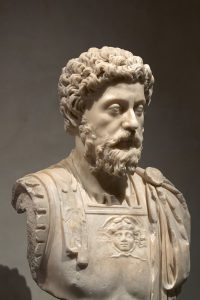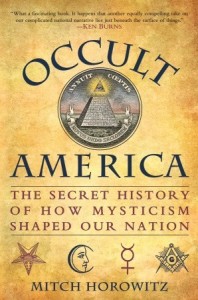For everything that is evil and harmful to you has its existence only in the mind.
I’ve been listening to Meditations by Marcus Aurelius in preparation for my move, as I dump the cassette tapes I’ve accumulated over the years, acknowledging that they have reached the end of their shelf life.

Think about how many years you have been putting things off, and how often the gods have given you extra periods of grace.
I was kind of “meh” about this tape when I first heard it, because I was going through a phase of rejecting a lot of New Age rules for living I’d acquired over the years, and I recognized a kernal of New Age philosophy in Marcus Aurelius. That was a revelation.
Marcus Aurelius was a guy who spent his life perpetually trying to talk himself out of a bad mood. He kept a diary of thoughts not for posterity but for his own reflection. He lived in the second century and subscribed to the Stoic brand of philosophy, which emphasized moral character. Also, he was an emperor of Rome.
Watch the stars, and see yourself running with them.
The New Age emerged in the nineteenth century in the experimental mysticism of the western New York state region known as the Burned Over District. It was “burned over” because there was so much religious fever. Joseph Smith (founder of the Mormon sect) got his vision here, the Masons were huge, African Americans were reclaiming their folkloric roots, and the Christian Science that inspired twentieth century New Age guru Louise Hay was born.
While the New Age is rightly criticized as a tool for privileged people to justify the material inequalities of the world, it started out as the polar opposite of this. Religious leaders believed the working class pessimism and resignation endemic in Europe was beginning to infect America. They wanted ordinary people to take more control over their lives.
The mind can transform any obstacle into something new, creative, and purposeful to help us on our way.
Certainly blaming all your problems on fate or other people is not going to get you anywhere. Given a choice between denial of oppression and the competitive victimhood of the Identity Age, I’ll take the New Age. Fortunately, with maturity comes discernment, and if even the Freudians can admit that “sometimes a cigar is just a cigar,” the rest of us can admit that, no matter how “spiritual” we tell ourselves we are, sometimes life is just darn hard.
For I seek the truth, and no man was ever injured by the truth.
Which brings me back to Marcus Aurelius. I’m enjoying what he has to say this time around. I think his philosophy rings true or false, depending on where or how it is applied. Also, it goes down better in small doses. If the dude had just let go and allowed himself to feel sad or afraid or angry for a day, maybe he wouldn’t have had to write all that stuff down.

